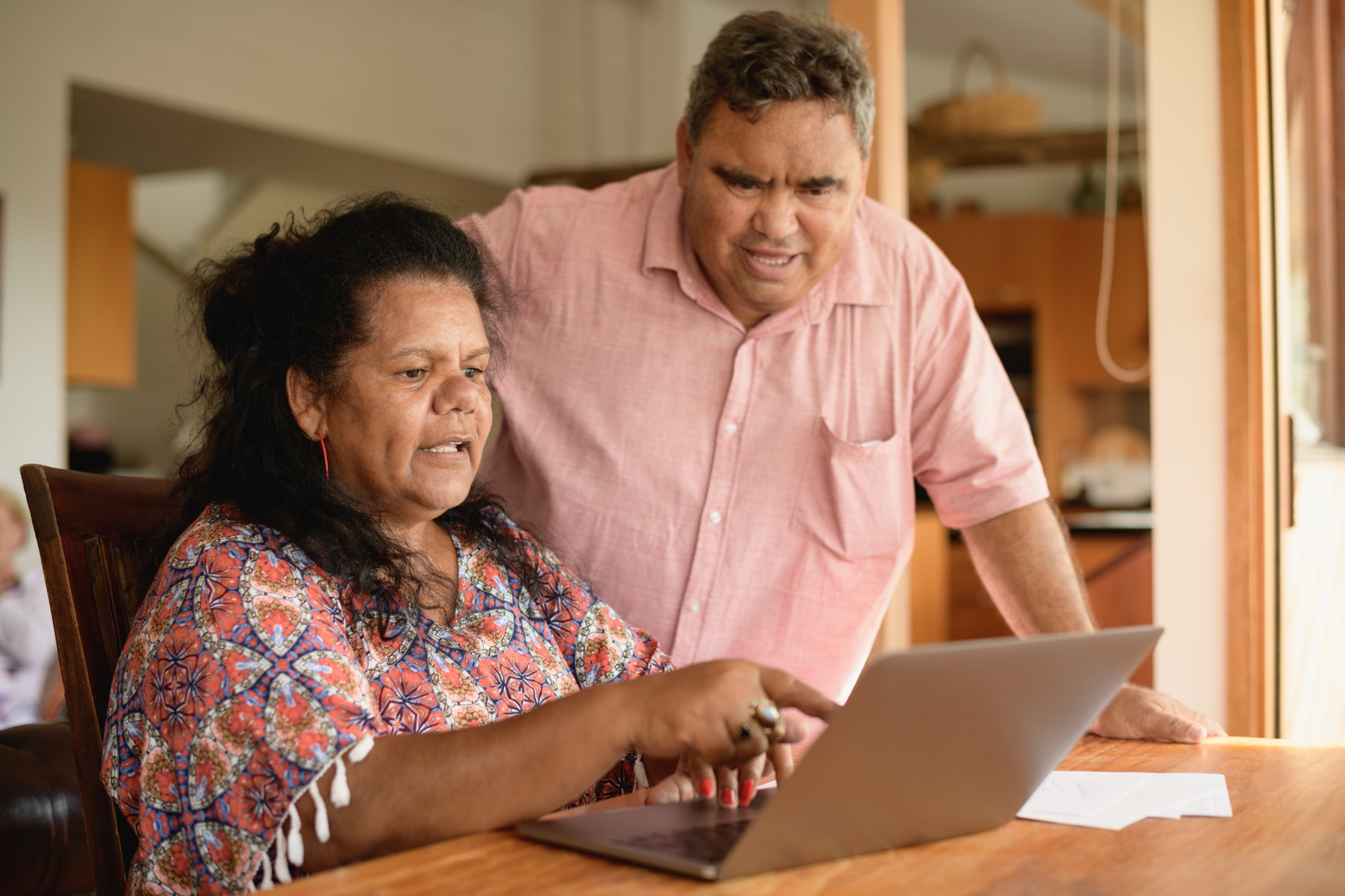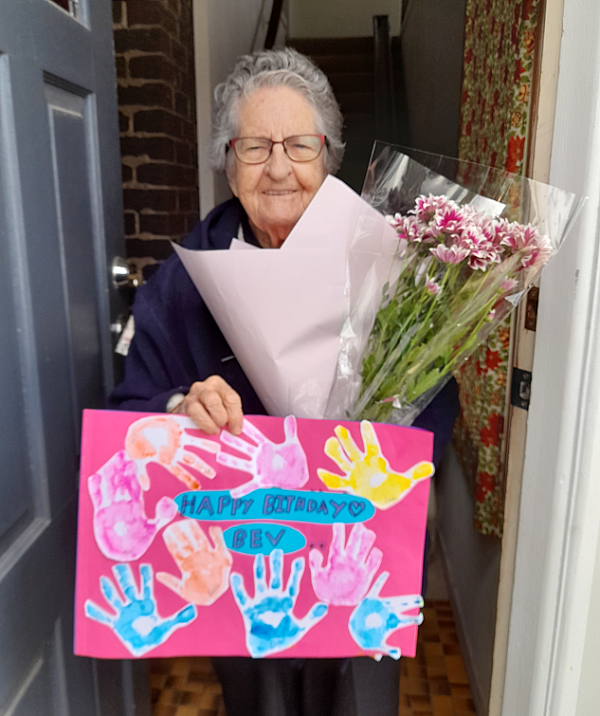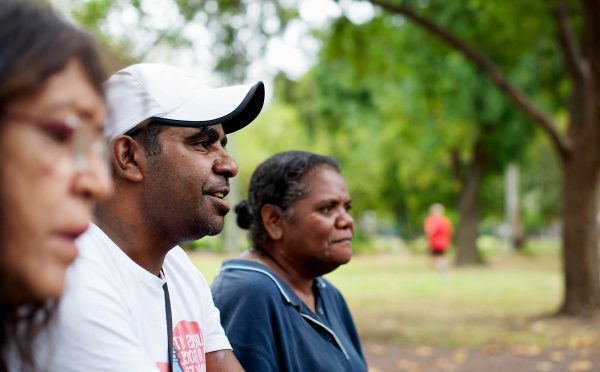Generational health: finding care and fostering connection in our communities
Aged and community care initiatives

Brisbane North PHN is funded by the Department of Health and Aged Care (DoHAC) to commission services that promote and support the healthy ageing of people in our communities.
Early interventions initiatives specifically designed to address isolation, loneliness and the social determinants of health for priority populations, and care finder services which seek to support vulnerable consumers in navigating the aged care system, are improving quality of life for people of all ages across our region.
We are pleased to share a collection of stories from aged and community care program consumers whom our Healthy Ageing team and their commissioned service providers have been fortunate to support and see thrive across 2023 and 2024.
“Days are brighter since joining the program”
Following the passing of her late husband, Beverley, 88, found herself living alone with dementia in her two-storey family home of over 50 years. Although moderately independent, the support of daughters Rhonda and Pam was still required to transport and accompany her to weekly medical appointments and shopping.
Despite daily phone contact providing some relief from social isolation and loneliness, Rhonda referred mum Beverely into the Paper Planes Intergenerational Play Program with the hope of enriching her days by building connections within her community.
Facilitated by Comlink at North Lakes and Chermside, Paper Planes fosters meaningful intergenerational and peer to peer connections for older adult and children participants.
This collaborative community initiative was developed in partnership with Edge Early Learning Centre Group to challenge ageist stereotypes, build a broader concept of community and inclusion, and support enhanced self-confidence through building interpersonal skills.

Her family describe Beverley taking to the program with gusto. Within weeks, she was “looking forward to Tuesdays” when she could be found ready and waiting at the front door for the Comlink bus in her Paper Planes uniform.
At the program outset, other senior participants noted Beverley’s limited repertoire of conversation topics that often had a repetitive focus on her own insular experience at home and with family. Quickly these conversations expanded to Beverely taking an active interest in the lives of the program’s children participants and engagement in the day’s activities – so much so, Bevereley could often be seen taking the children for rides on her Wheelie Walker.
Rhonda has shared that her phone is conspicuously quiet on Tuesday nights now, and is comforted that her mum is returning from her days of play with her children and senior friends happy and content.
Mum no longer sits and wonders if she has anyone to talk to because she knows that Tuesday is on its way. She continues to talk about the children she meets – and can even remember most of their names. We spoke to her dementia doctor who congratulated Mum for joining the program.”
Upon post-program review, Beverly scored 0.8 on the Loneliness Scale with her family, program staff and new friends all in agreement that intergenerational play has had a significant, positive impact on her mental health and social wellbeing. Her continued participation in Paper Planes Intergenerational Play is helping to keep Beverley living at home – incurring far fewer costs to the health and aged care system than if she were to reside in permanent residential aged care.
Rhonda fortuitously heard about the program for mum Bev through her work and has gone on to support their case worker and other senior participants with entry into the program.
Participants Bette Atkins and Lesley Sheppard had similar positive experiences with Paper Planes. Watch Bette’s story. Watch Lesley’s story.

Across the Early Intervention Program • 36 people received a Comlink Intergenerational Program service • 84 First Nations people received an IUIH Intergenerational Program service • 130 First Nations people received an IUIH Early Intervention Program service • 27 participants were supported to complete the CarFreeMe program.
Finding care for a family unit
David* and Sue* (and four-year-old dog, Oodie) are a married couple who were living on their daughter’s property. David has Functional Neurone Disease and suffers associated vision loss, limb weakness, seizures and blackouts. These episodes can last for up to two weeks at a time and were becoming stressful and unmanageable for wife Sue without assistance, and with her own limited mobility following knee reconstruction surgery.
The family were forced suddenly to find new housing arrangements in December following the separation of the couple’s daughter and her husband – circumstances that rendered them eligible for care finder services so as not to fall through the cracks.
The program, delivered in our region by provider organisers Micah Projects, World Wellness Group, Communify Queensland, Ozcare, Footprints Community and Queensland Council for LGBTI Health, supports vulnerable older Australians who require intensive support to understand and access aged care and connect with other relevant supports in the community.
Ozcare care finders place a special focus on people who are at risk of homelessness. In David and Sue’s case, they quickly intervened to find the couple appropriate accommodation and medical assessment.
Without this support, David and Sue would potentially be without a home and without hope. Instead, they and Oodie are now happily residing in their new home at Seasons at Bellara, receiving Meals on Wheels and additional groceries with further support from the Salvation Army First Response Team.
Care finders are helping to improve the couple’s computer literacy and teaching them both how to access My Aged Care services. A more comprehensive Home Care Package – a coordinated package of care and services funded by the Department of Health and Aged Care to help older Australians to live independently at home – is expected to be delivered to the family shortly.
*Pseudonyms used.
This year, 1,548 sessions of care finder support were provided to highly vulnerable people, including • 58 First Nations persons • 155 Culturally and Linguistically Diverse persons • 22 LGBTQIA+ persons • 37 Forgotten Australian/Care Leavers and • 192 people experiencing homelessness, or at risk of homelessness.
Support to stay at home, safely
In collaboration with consumers, service providers, hospitals, GPs and government, Brisbane North PHN commissions a wide range of other programs which aim to further improve outcomes for people in our community aged 65 and over.
Learn more about our aged and community care initiatives – including Your Care Navigator, residential aged care programs, Team Care Coordination, the Regional Assessment Service, and support for palliative care.
